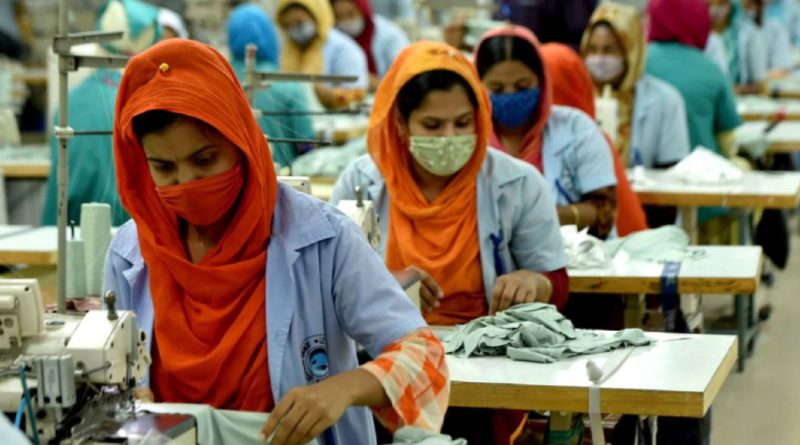A global labour rights group has urged fashion brands, suppliers, and governments to take immediate action to protect garment workers from rising temperatures that are intensifying due to climate change.
In its new report, “Heat and Garment Workers’ Rights – Fashioning a Just Transition,” the Clean Clothes Campaign (CCC) warned that 72 million garment workers, many of them women and migrants, face growing risks of illness, harassment, and wage theft as global temperatures climb.
The report, released on October 15, highlights that the garment industry is particularly exposed because production hubs are often located in regions already prone to extreme heat. Among the “Critical 9” countries most at risk—India, China, Indonesia, Pakistan, Bangladesh, and Brazil—six are key garment exporters.
CCC said that the fashion industry itself contributes heavily to the crisis through greenhouse gas emissions and environmental degradation, while profiting from cheap labour. As the climate crisis worsens, workplace heat has become a systemic threat, worsening existing labour rights violations and creating new ones.
“It must be recognised as a fundamental labour and human rights issue,” the report stressed.
The organisation also urged governments to introduce binding standards for monitoring and mitigating workplace heat, ensure social protection for affected workers, and address future employment impacts.
“There is no excuse for delay,” the report stated, adding that failure to act leaves millions of garment workers vulnerable to dangerous temperatures, financial insecurity, and uncertain futures.
Giuseppe Cioffo of CCC emphasised that authorities must “take workplace heat seriously and act now to protect workers.”
The group called for worker-driven, inclusive, and locally relevant measures to ensure health and safety in factories. It also pressed brands and suppliers to end exploitative practices, allow workers to organise freely, and co-create climate adaptation strategies.
“Without urgent action,” the report warned, “garment workers will remain exposed to the full force of climate breakdown—endangering their safety, livelihoods, and future.”






